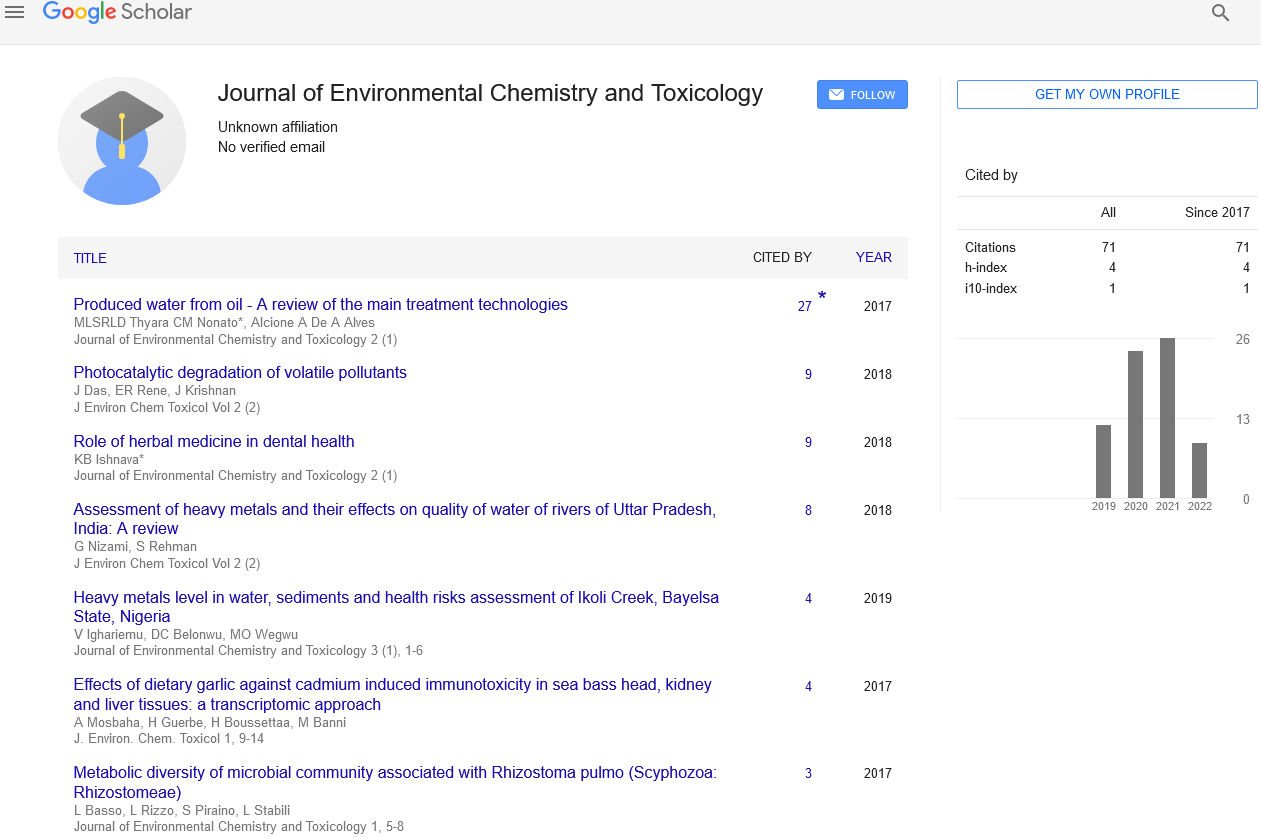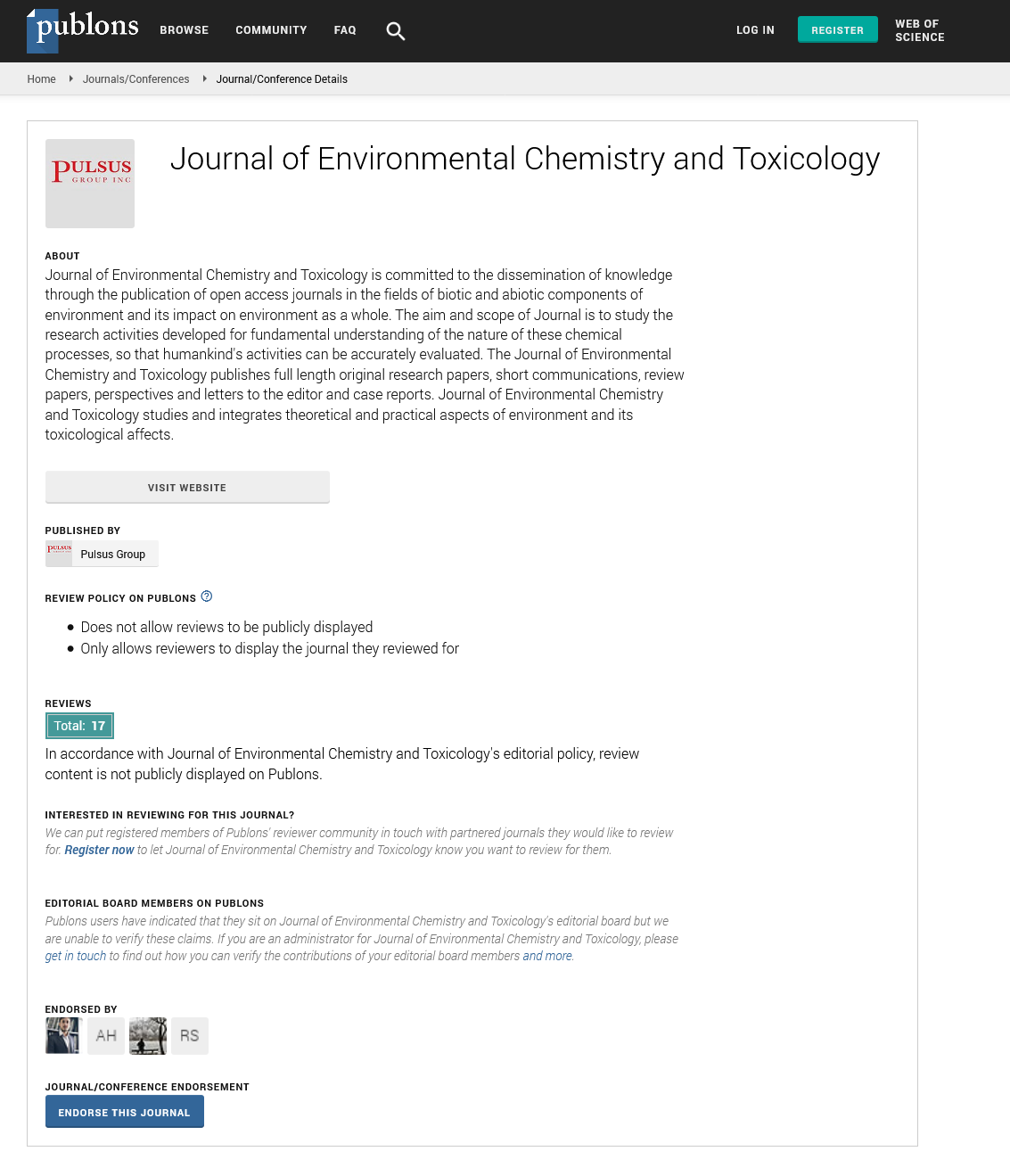
Sign up for email alert when new content gets added: Sign up
Abstract
Length-weight relationship and condition factor of Periopthalmus papilio (Bloch & Schneider, 1801) obtained from a tidal creek in the Bonny Estuary, Nigeria
Author(s): Miebaka Moslen, BSc, MSc, PhD* and Erema R Daka, PhDThe aim of this study was to evaluate the length-weight relationship and condition of mudskipper (Periophthalmus papilio) obtained in a tidal creek in the Niger Delta. Total of 120 samples were collected in twelve months with length and weight measurements carefully taken in the laboratory. The difference in weight per unit length (b) obtained from regression equations ranged from 1.95-3.5 while the condition factor (K) ranged from 1.12-1.45. Monthly values of ‘b’ and K compared well with overall ‘b’ value (2.551) and K-value (1.25) with implication of sample homogeneity. The ‘b’ values showed both positive and negative allometric growth pattern while K values indicated mudskipper samples, were in good condition. All the fish examined for each month showed a linear relationship between weight and length of mudskipper however, variation in weight for each month was observed and was significantly different (P<0.01) between the months of study. The observed differences in ‘b’ and K values may have environmental and dietary implications with respect to time. The study concluded that the weight of mudskipper per unit length varied across periods and all fish samples had K values that indicated good condition suggesting favourable ecological condition in the study area. Caution should however, be applied, as mudskippers could bioaccumulate and biomagnify pollutants in aquatic environments while in good condition without physical signs of distress.





